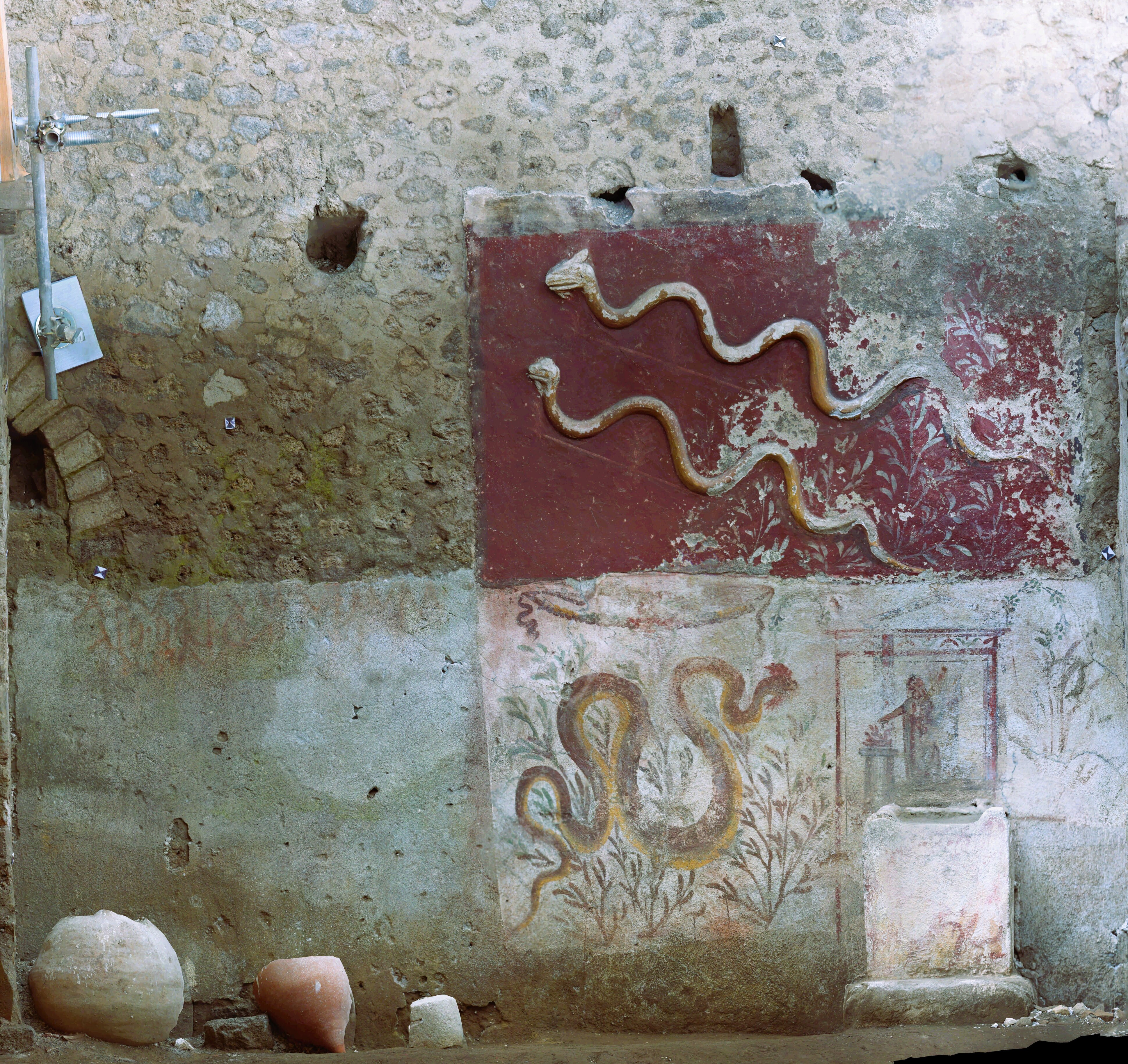Archaeologists in Pompeii have discovered political inscriptions on the walls of a house in Pompeii. Inscriptions of this type, first carved and then painted in red (porpora), are common on the outside walls of houses and shops in the ancient city, and even on millstones. However, this is the first time they have been found inside a home, providing more insight into the day-to-day life in Pompeii before it was buried in the Vesuvius eruption of 79 CE.
This discovery comes from the same house where the fresco with focaccia, pesto, and wine was discovered a few months back. These are new digs in the center of Pompeii with the goal of better protecting houses and shops along the Via di Nola.
The inscriptions were found inside the Lararium. This is the shrine to the Lares, hero-ancestors or guardian spirits of the Roman household. Family members performed daily rituals in front of the shrine, and in an incredible discovery, the researchers were able to reconstruct what the last sacrifice to this shrine was before the fateful eruption.
Researchers found that figs and dates had been burned over olive pits and a pinecone with pine nuts. The pinecone was a standard in rites around the lararium. A whole egg was also added at the end of the ritual and all this was covered with a roof tile. On the wall behind the altar, two plaster snakes and some fresco snakes can be seen.
The wall of the lararium with the altar on the bottom left.
Image Credit: A. Marchello, G. Pippo Courtesy of the Parco Archeologico di Pompei
The candidate whose name is found in this house is Aulus Rustius Verus, who was running for the role of aedile. This is a Roman magistrate in charge of public works, games, buildings, and roads. Rustius Verus was already known to historians in the decade of 70 CE as one of the two duumviri, the highest office in the city. He held this post together with Giulio Polibio.
“I urge you to vote for Aulus Rustio Vero, the candidate for aedile, a man deserving of that office of state,” reads one of the inscriptions as translated from the paper by IFLScience.
The house does not belong to Rustius Verus but a supporter, either a friend or possibly a freed slave. The house also hosts a bakery with a large oven. A few months ago, in the bakery, archeologists found the remains of three victims of the first eruptive phase. Two women and a child were buried under a collapsed roof.
The presence of a bakery in the house and the political campaigning going on, suggest a possible vote trading – not exactly corruption per se but a strategic alliance between the politicians and the bakers.
“Aediles and bakers collaborated to the limits of legality,” Professor Maria Chiara Scappaticcio, from the Università Federico II, said in a statement as translated by IFLScience. “And, it is likely that A. Rustius Verus could have understood right from the start (just like Giulio Polibio) when he was still struggling to become an aedile and in the midst of his electoral campaign, that (above all) voters live on bread.”
The two papers covering the political inscriptions and the offering to the Lares were published in the E-Journal degli Scavi di Pompei.
Source Link: Ancient Roman Political Slogans And A Final Sacrifice Found In Pompeii House
